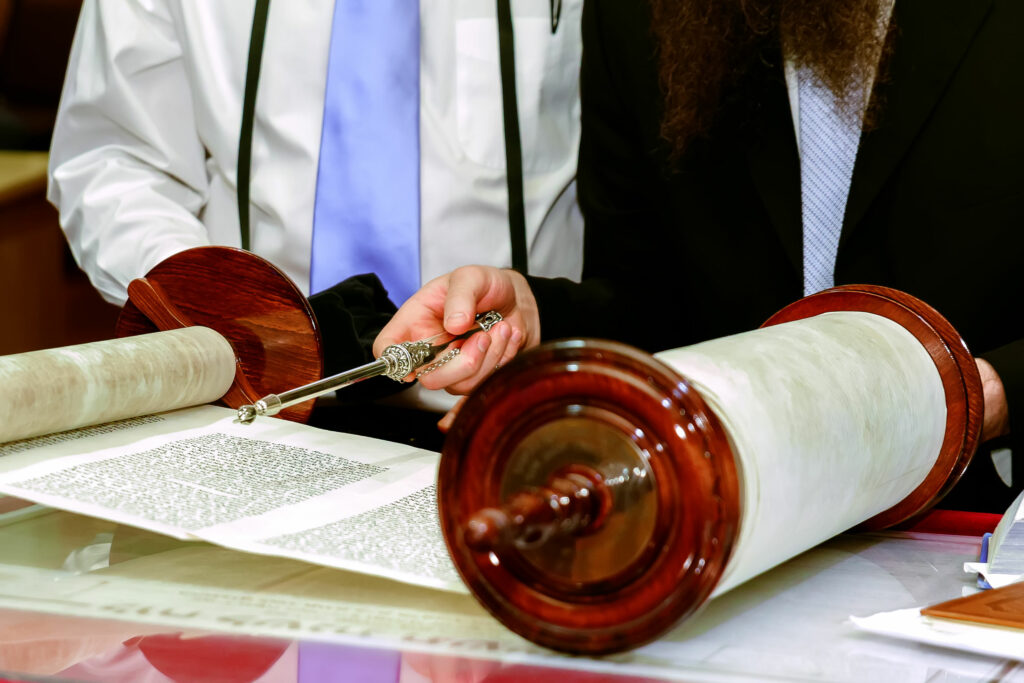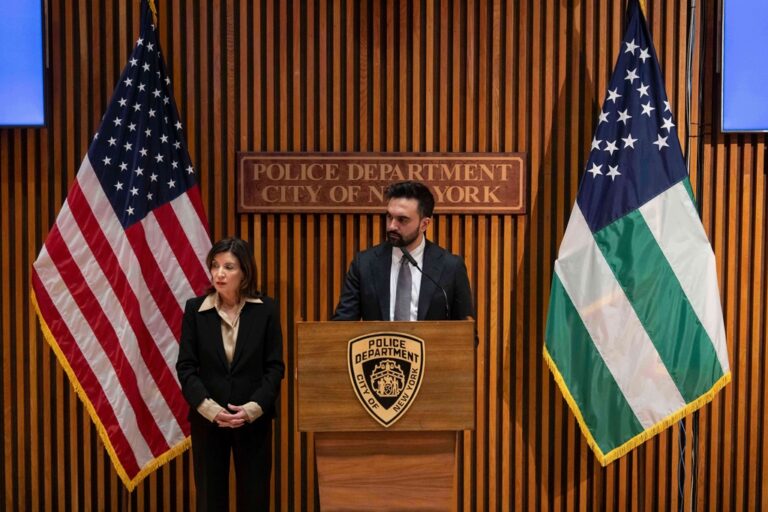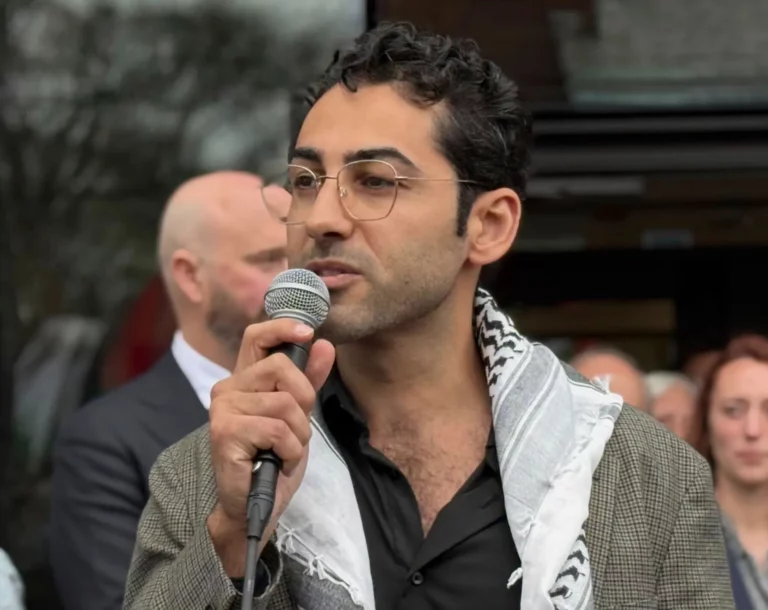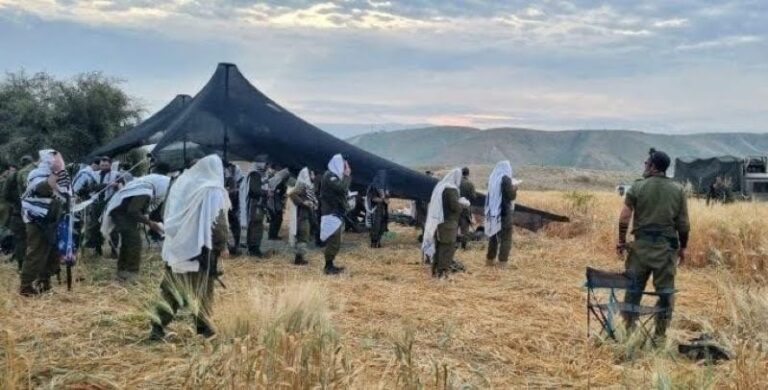by Rabbi Yair Hoffman for 5tjt.com
There is a question that a number of people ask:
If staying up all night kills one’s Torah learning schedule, should one do it anyway? Or should one keep to the maximum Torah learning schedule possible – even on Shavuos?
It is one of those questions that will, in all probability, only be fully resolved with the advent of Moshiach. If we look at the personal practices of Rav Moshe Feinstein zt”l, and Rav Chaim Kanievsky zt”l, we will find two very different methods of conduct. Rav Moshe zt”l did not stay up all night and rather kept to his regular schedule of getting up hours before dawn to learn. Rav Chaim zt”l advised to stay up regardless of the impact on one’s learning schedule.
Nonetheless, we may get some additional insight with a thought expressed by HaGaon haRav Yeruchem Olshin shlita, one of the Roshei Yeshiva of BMG.
A SUPER “LACHEM” HOLIDAY
The term “Lachem” means – “for you.” The Gemorah in Psachim 68b tells us: Rabbi Elazar says, “All admit that on atzeres – Shavuos – we require lachem – it should be for you as a holiday. What is the reason? Because it is the day that the Torah was given.”
But what is this Gemorah actually telling us?
The commentaries explain that this Gemorah means that we should be happier on this yom tov than on others. Indeed, Rav Yechiel Yehoshuah Rabbinowitz, the Biala Rav, in his Seder HaYom writes this explicitly. The yesod veshoresh haAvodah (Shaar HaTzon 10) develops this idea explaining that it is because we received this remarkable treasure of the Torah.
THE SHLA’S INSIGHT
The Shla HaKadosh (Meseches Shvuos Ner Mitzvah 18) adds another level of insight. He writes that it is the day in which we merited the “Crown of Torah.” He cites the Gemorah in Psachim where Rav Yoseph states that were it not for this day, he would be just another “Joe” in the marketplace.
It is not just the fact that we received the Torah that makes us happy – it is the fact that we had merited the receiving of its crown.
THE RAMBAM
To understand this thought, the Rambam tells us (Hilchos Talmud Torah 3:13), “Even though it is a Mitzvah to learn Torah day and night, a person only learns the majority of his Torah at night. Therefore, someone who wishes to merit the crown of Torah should be careful to study it each night not missing even one of them in sleeping, eating, drinking, or conversation, etc. He should only engage in Talmud Torah and Divrei Chochma. This is called the Rina (joy) of Torah.
TWO ASPECTS OF THE STUDY OF TORAH
The Av Beis Din of Ponevech explained (cited in Zichron Shmuel p. 574) that there are two aspects of studying Torah. There is the aspect of studying it in fulfillment of the Mitzvah of Limud HaTorah.
But there is also another aspect of learning Torah that is not so well known. Before we explore this lesser known second aspect, let us realize that, in this author’s opinion, it is one of the most powerful aspects of parenting. Let us remember that mankind has been endowed with something called bechirah chofshis – free choice. We cannot make decisions for other people, we can only give advice and try to provide the logistics to encourage the best decision possible.
But if we try to live out the second aspect of studying Torah – it can have remarkable repercussions and keep kids on track.
So what is this second aspect of Torah study? It is known as “HaShira HaZos – this song.” In other words, Torah study should be approach as actually being the song of the life of the person. A person who looks at Torah study as the song of life actually delights and takes pleasure in its study. He does not delay in sticking to Torah study – on any account. During any difficult situation, he engages in it’s study and he sleeps in the depth of its halacha. Even when that person is tired – he studies Torah. This is the idea in Ahava Rabbah – ki haim chayeinu – for they are our lives.
This is the fundamental idea of the Crown of Torah.
We can now better understand the Shla’s explanation of Shavuos.
The custom of Klal Yisroel learning all night is now also understood better. It is not just to make up for the fact that we slept then. No, the essence of the problem in that we slept was that we were not yet at the state where it was “the song of our life.” We are thus correcting this flaw in who we were or are as a nation.
We should take greater pleasure and joy in this Yom Tov because it symbolizes the song of our lives. But it also does two other things too. Viewing Torah study as the song of our life is also the path to a logistical tweak that can keep generations of our children, grandchildren and great-grandchildren on the path of Torah. It also is the key to living a life filled with joy and simcha in life. Recently, a mother informed this author of a fascinating scene that she had experienced the previous day.:
She was unaware of the whereabouts of her son. She decided to go down to her basement. There she saw her son at a table with two Gemorahs open. He was studying them with a deep smile on his face and reciting the Gemorah in a singsong tune. She could detect the true happiness that he felt inside.
The author can be reached at [email protected]










